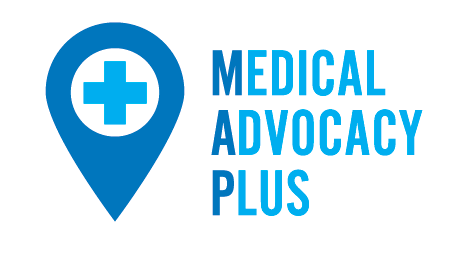14 Apr Preventing And Managing Atherosclerosis: Simple Lifestyle Changes
The Power and Support of Patient Advocacy
Did you know that atherosclerosis, a buildup of plaque in the arteries, affects millions worldwide and can lead to chronic diseases and even death? The good news is that with simple lifestyle changes and the help of a patient advocate, you can take control of your health and reduce your risk. In this article, we’ll explore the causes and prevention of atherosclerosis and how a patient advocate can help you manage this debilitating disease and live a fulfilling life. Atherosclerosis, a type of arteriosclerosis, is a silent but deadly condition that can lead to chronic disease and even death. But what exactly is it, and how can you prevent it?
Arteriosclerosis may be a mouthful, but it affects millions worldwide. Think of it as the “hardening of the arteries.” It happens when the blood vessels that supply oxygen and nutrients from the heart to the body become thick and rigid, which can lead to limited blood flow to organs and tissues.
Atherosclerosis is a type of arteriosclerosis characterized by the accumulation of fats, cholesterol, and other materials within the walls of arteries. This buildup, also known as plaque, can cause the arteries to narrow, potentially obstructing blood flow. It can lead to stroke, heart attack, and leg or arm pain.
Fortunately, atherosclerosis is mainly preventable. By making simple lifestyle changes and working with a patient advocate, you can take control of your health and reduce your risk of this debilitating disease.
What are the contributing factors and how can you prevent it leading to a chronic disease?
- High blood pressure
- High cholesterol levels
- Smoking
Let’s break them down:
1. High blood pressure: High blood pressure, or hypertension, is a significant risk factor for atherosclerosis. The typical normal range is 120/80 mm Hg. These numbers can vary with age. Over time, high blood pressure can damage the lining of the arteries, making it easier for plaque to accumulate. Did you know that most blood pressure readings are taken incorrectly? For accurate results, it is recommended to sit and relax for just five minutes before the measurements. So, the next time you are at the doctor’s office, ask if you can sit before taking your readings.
You should maintain a healthy weight, exercise regularly, and limit sodium intake to prevent or manage high blood pressure. In addition, eating a diet that is rich in whole, nutrient-dense foods like fruits, vegetables, whole grains, and lean protein can also be beneficial.
2. High cholesterol levels: As mentioned earlier, high cholesterol levels, specifically high LDL or “bad” cholesterol, can contribute to the development of atherosclerosis. This is because LDL cholesterol can build up in the arteries and form plaque, leading to narrow and hardened arteries. However, contrary to popular belief, most dietary cholesterol does not significantly impact LDL levels. Instead, consuming high-fat, processed foods can often contribute to elevated LDL cholesterol and an increased risk of arteriosclerosis. Egg consumption is an excellent example of a dietary food product that is unlikely to impact cholesterol levels significantly.
To manage high cholesterol levels, you should focus on a diet low in saturated and trans fats, which can increase LDL cholesterol levels. Eating a fiber-rich diet, healthy fats, and plant-based proteins can also help lower cholesterol levels. It’s always best to consult a healthcare provider or registered dietitian to determine our dietary needs and develop a personalized nutrition plan. Here is a helpful chart.
3. Smoking is a major risk factor for many chronic diseases, including atherosclerosis. Nicotine in cigarette smoke can damage the lining of the arteries and promote plaque buildup. Whether it’s cigarettes, cigars, or even marijuana, all forms of smoking can increase inflammation, damage the lining of your arteries, and contribute to the development of arteriosclerosis.
Quitting smoking is one of the best things you can do for your health. Many resources are available if you’re struggling to quit, including smoking cessation programs, support groups, and nicotine replacement therapies.
In addition to managing these three major risk factors, there are other steps you can take to prevent and manage atherosclerosis and related chronic diseases. These include:
- Regular physical activity: Exercise can help improve circulation, lower blood pressure, and reduce LDL cholesterol levels.
- Maintaining a healthy weight: Being overweight or obese can increase your risk of many chronic diseases, including arteriosclerosis. Maintaining a healthy weight through diet and exercise can help to reduce your risk.
- Managing stress: Chronic stress can contribute to various health problems, including high blood pressure and heart disease. Stress-reducing activities like meditation, yoga, or deep breathing exercises can be beneficial.
- Managing other chronic conditions: If you have other chronic conditions like diabetes or kidney disease, managing these conditions effectively to reduce your risk of developing arteriosclerosis and related complications is essential.
A patient advocate can be invaluable if you struggle to manage a chronic disease like atherosclerosis. A patient advocate can help you navigate the complex healthcare system, provide support and education, and help you manage your condition effectively and affordably.
Managing a chronic disease can be time-consuming and expensive, and a patient advocate can help streamline this process and reduce your healthcare costs. In addition, by working with a patient advocate, you can develop a personalized care plan that considers your needs, preferences, and financial situation.
Ultimately, a patient advocate can help you take control of your health and manage your chronic disease in a way that allows you to live an entire and fulfilling life. If you’re struggling to manage a chronic condition like arteriosclerosis, consider working with a patient advocate to get the support and guidance you need.
If you’re concerned about yourself or a loved one, schedule a free consultation today to get started on improving your health!

